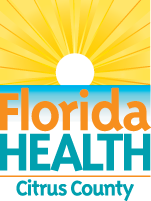Arielle Dreher / The Spokesman-Review
Racism is a public health crisis in Washington, a state association declared last month, and efforts are now underway to show how policies and systemic prejudice impact the health and well-being of the state’s residents.
“When we’re looking at racism, it stems from policies that have been created many years ago,” said Adrian Dominguez, chief data officer at the Urban Indian Health Institute, who serves as president of the Washington State Public Health Association. “If we do not address those policies and they continue to exist, you have institutional racism that still holds people down, and not having access to certain things creates this level of anxiety or stress that ultimately has an impact on BIPOC communities, and it’s a full circle.”
The Washington State Public Health Association is a group of public health and health care professionals, as well as educators and business and community leaders. The group has a membership of about 600 people, and it is growing, Dominguez said. The association seeks to improve health of all Washington residents — not just physical health, but mental, social and emotional health.
The group’s board of directors was working on a resolution about racism and equity for a few years, but the Black Lives Matter movement and then the pandemic pushed it to its final form.
The resolution lays out four focus areas: advocacy, education, allyship and accountability.
Dominguez said they are encouraging other local health jurisdictions to adopt similar resolutions. A resolution, however, is just the beginning.
The pandemic disproportionately impacted communities of color in Washington, despite state and local health agencies’ efforts. Dominguez, who has worked in public health in several states, said Washington state is a leader in this area.
“I think the Washington State Department of Health and many of the individual public health jurisdictions do incredible work,” Dominguez said. “I think we’re leaders in the country — I’ve worked in lots of states — and by far Washington state is one of those leaders. And with that being said, there’s a lot of work to be done, and that’s where this resolution comes in.”
Native Hawaiian, Pacific Islander and Hispanic Washington residents have the highest age-adjusted case rates for COVID-19 in the state. Native Hawaiian and Pacific Islanders have seven times higher COVID hospitalization rates than white Washingtonians.
Hispanic Washington residents have two times higher hospitalization rates for the virus than white residents.
When it comes to vaccinations, especially booster doses, people of color are not accessing them at rates similar to white Washington residents, DOH data show.
Department of Health officials acknowledge these gaps and have said they will continue their efforts to close them.
“The gap between our counties with the highest rates and our counties with the lowest rates is 50%, and that’s really significant,” Michele Roberts, assistant secretary at the department, told reporters last week. “That’s why we continue to talk about the importance of vaccination, why we continue to offer vaccination services and why we continue to especially make sure our efforts are culturally and linguistically appropriate, and work on our equity efforts to close the gaps.”
The Department of Health has outlined efforts to fund and continue to work with community organizations on vaccination efforts this spring and summer.
The pandemic pushed state and local health authorities to work with community organizations to increase vaccination rates and access to testing, PPE and vaccines. But some of these relationships were established only after realizing certain guidelines wouldn’t work for a community.
When vaccines were first available early in 2021, the Department of Health set age limits at 65 and older, then 50 and older for multigenerational households. Some communities would never have been reached with the 65-and-above cutoff.
“If you look at communities of color, that proportion is really small, so you’re already excluding the population you should be including,” Dominguez said. “The average age of a senior is lower than 65 in those communities.”
In Spokane County, involving community organizations and groups in pandemic response, like the NATIVE Project, resulted in a lot more access for communities that were either distrusting of large mass vaccination clinics or simply could not get off work to go get a shot at the times most were open.
This community involvement in public health is vital to building trust, Dominguez said.
“That’s one of the failures sometimes of public health, is we’re educated and we have the book smarts, but we don’t know the communities, and those relationships take a long time to establish,” Dominguez said.








